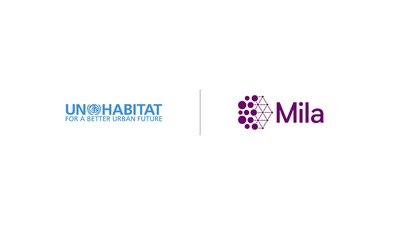WASHINGTON, Oct. 04, 2022 (GLOBE NEWSWIRE) — EB5 Capital is pleased to announce two new offerings after the passing of the EB-5 Reform and Integrity Act of 2022.
“We’re excited to be back in the market traveling and meeting with prospective investors and partners from different corners of the globe,” said EB5 Capital Founder & CEO, Angel Brunner. “Between the Covid-19 pandemic and a brief expiration of the EB-5 Regional Center Program last year, our team is thrilled to be on the road again.”
EB5 Capital’s San Luis Obispo Marriott Hotels (JF31) is a dual-branded Residence Inn and SpringHill Suites Marriott hotel. San Luis Obispo is a popular tourist destination, known for its historic architecture, hospitality, and hundreds of wineries in the region. The city is situated almost exactly in between Los Angeles and San Francisco, along the well-traveled U.S. Route 101. This is EB5 Capital’s sixth partnership with developer Huntington Hotel Group, a member of Marriott’s Partnership Circle.
EB5 Capital’s Addison Row (JF32) is a 327-unit apartment building in Capitol Heights, Maryland, a suburb of Washington, DC. The project is the second phase of a master-planned development situated four metro stops from Capitol Hill, home to the legislative and judicial branches of the federal government. This is EB5 Capital’s 19th EB-5 project in the Washington, DC area. It is also the fifth partnership with Douglas Development Corporation, one of the most widely recognized developers in the region.
“These types of EB-5 projects – a Marriott hotel with a repeat developer in California and a multifamily project with a repeat developer in Washington, DC – have been tried and tested with our company repeatedly in the past, with a great track record of job creation and repayment success,” said EB5 Capital President, Brian Ostar. “Our first offering immediately after the passing of the new EB-5 law – our Takoma Park (JF30) multifamily project in Washington, DC – sold out within weeks, and we are beyond excited to be able to provide our investor base with new offerings so quickly.”
Earlier this year, the EB-5 Immigrant Investor Program received new legislation for the first time since it was established in 1990. The Program allows qualified foreign investors to obtain permanent residency in the United States after investing a minimum of $800,000 in a project and creating at least ten full-time jobs for the U.S. economy. More than $40 billion of EB-5 foreign direct investment has been injected into the U.S. resulting in the creation of at least 820,000 job opportunities for U.S. workers.
EB5 Capital provides qualified foreign investors with opportunities to invest in job-creating commercial real estate projects under the United States Immigrant Investor Program (EB-5 Visa Program). As one of the oldest and most active Regional Center operators in the country, the firm has raised nearly a billion dollars of foreign capital across more than 30 EB-5 projects. Headquartered in Washington, DC, EB5 Capital’s distinguished track record and leadership in the industry has attracted investors from over 70 countries. In addition to U.S. permanent residency, EB5 Capital offers real estate private equity investments and non-U.S. Citizenship by Investment Programs. Please visit www.eb5capital.com for more information.
Contact: Juline Kaleyias, VP Business Development media@eb5capital.com

